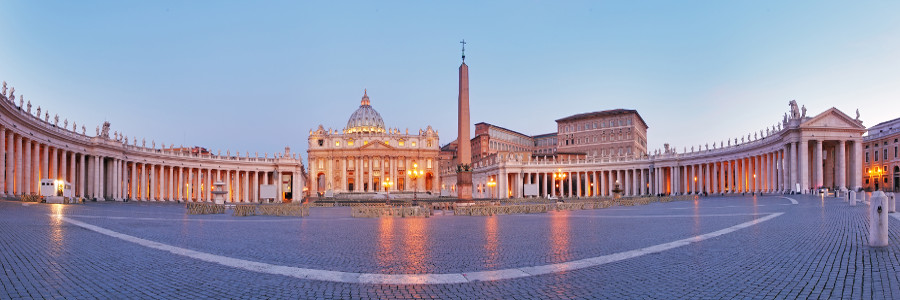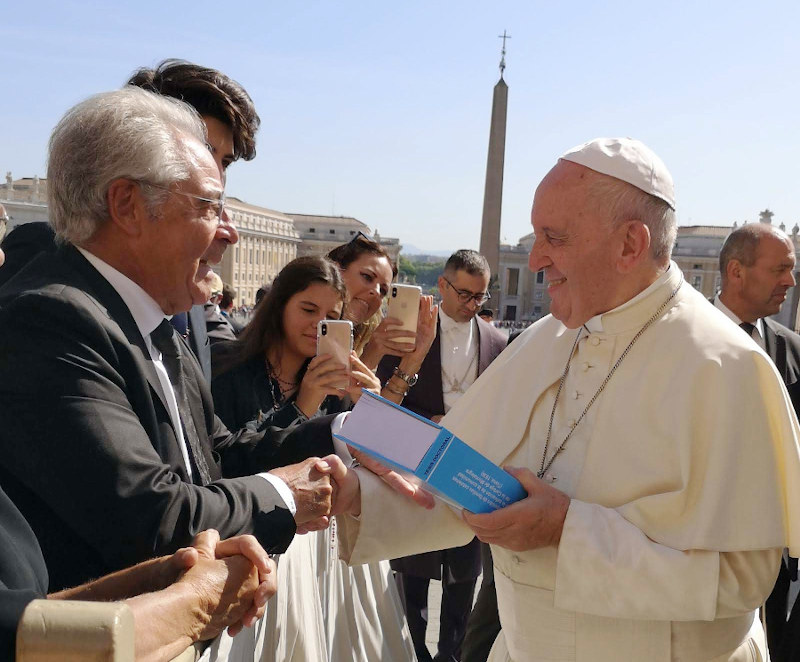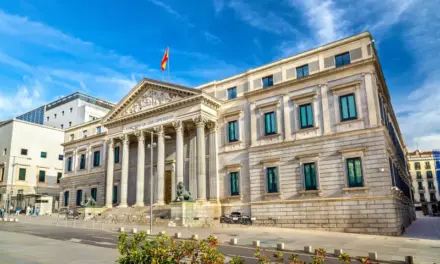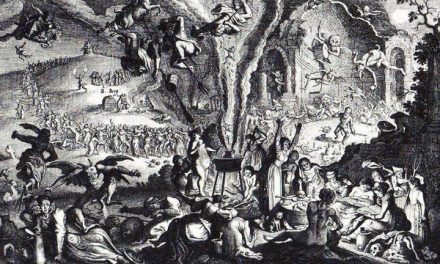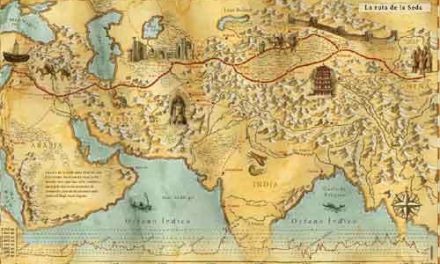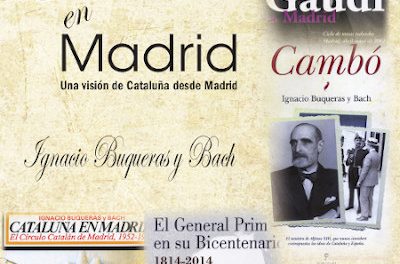Pedro Clarós, full academician and vicepresident of the Governing Board of the Royal European Academy of Doctors-Barcelona 1914 (RAED), participated last September 11 in the traditional audience that Pope Francis offers in Saint Peter’s Square in the Vatican. Accompanied by his family, Clarós exchanged impressions with the Holy Pontiff and handed him a copy of the doctoral thesis in Humanities, Communication and Education that he will soon defend in the Hall of Degrees of the International University of Catalonia with the title “Participación de las familias catalanas en la salvación de la comunidad de la Cartuja de Montalegre en 1936” (Participation of the Catalan families in the salvation of the community of the Montalegre Charterhouse in 1936). A very complete study that clarifies the facts of the executions and religious persecution of the monks of the Charterhouse as well as a review of the history of Spain and reasons that led to civil war and anticlericalism.
Clarós explains the great impression that the interview produced him. “I felt a great emotion when Pope Francis looked me in the eye and shook my hand, a knot in my neck prevented me from saying a word. I never thought that these things would happen to me, but his power is attractive”, he says. He also adds that having the opportunity to share the experience accompanied by the whole family added great value to the audience. “We all feel him very close”, he confesses.
The Community of the Charterhouse belongs to a religious order of French origin today formed by very few monks. However, its impact on the Catholic community is highly appreciated and of marked specific weight. “After more than 80 years of the events that have occurred, I wanted to make a historical review in this doctoral thesis, clarifying some doubtful points and seeking in depth the help and participation of individuals, families and private, public and international institutions that achieved, among all of them, the salvation of the community of the Carthusian monastery and its subsequent restoration”, explains the academician.
“We have managed to personalize the different members and benefactor families that intervened in helping the monks. We have analyzed the details of the execution of the religious, making a forensic examination of the bone remains and found all the documents that confirm how the deaths occurred. Those responsible for such disorders and murders have been located and the documents on how justice has treated them have been found. In this historical investigation, unique and unpublished documents have been included, both from the Private Archive of Montalegre, the Clarós family, and the Diplomatic Center of France, those of the Prosecutor’s Office and the Military Archive that are transcribed in full, given their historical value”, he concludes.

